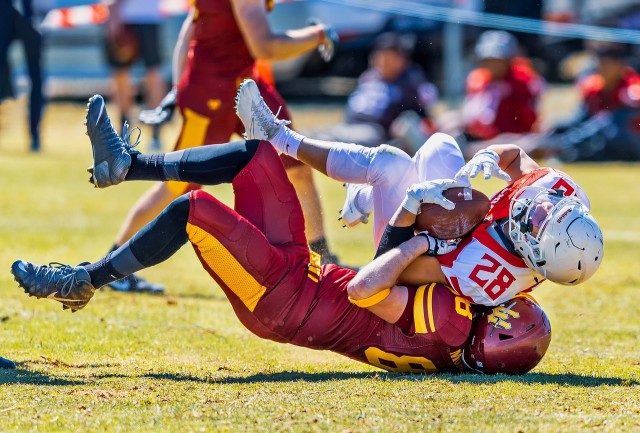If you play sports or your child does, there is always the potential for a head injury such as a concussion.
It's important to take steps to prevent these injuries because they can have long-lasting effects, but if you or your child does get a mild head injury, are there ways you can help speed up your recovery process or improve the health of your brain?
Maybe, but don't ever rely on that instead of medical advice. Instead, if you are dealing with a mild head injury, speak with your doctor about what you can do for a healthier brain, and ask if any of the following might be an option for you.
Cognitive Training Classes
There was recent research that found that if you have brain trauma, it can thin your cortex and jumble your neural networks.
The effects can include problems with functionality as well as psychological problems such as PTSD and depression. These effects may last for years after you recover from the acute injury.
Researchers found that cognitive training classes can improve symptoms of depression, regardless of the actual topic of the classes.
What this could mean is that if you are dealing with something such as a concussion, you might want to engage in a topic you're interested in learning about to reduce ongoing symptoms. Maybe you take an online language class for example or learn something about coding.
It really doesn't matter what you're learning, as long as you're exercising your brain in that way.
Even just keeping your brain engaged through conversations and interactions with other people can help your recovery.
Moderate Exercise
Researchers at the Cleveland Clinic wanted to look at the conventional advice doctors often give when children have concussions, which is that they shouldn't engage in any physical activity during their recovery.
New research challenges that, however.
Researchers looked at 103 children between the ages of 13 and 18. The children had been diagnosed with a concussion related to sports.
Some were prescribed to do light stretching, without elevating their heart rate. Others did light aerobic activity like cycling or jogging.
The participants who did light aerobic activity recovered faster from their concussions than the children who just did stretching.
Doctors at Cleveland Clinic now say that as long as activity isn't aggravating a child's concussion symptoms, moving sooner rather than later is a good thing.
With this being said, light-to-moderate activity doesn't mean you get right back to the sport or activity that gave you the concussion in the first place. Don't do anything that could lead to further head trauma.
Diet
Eating a healthy diet is always important, but it can boost the health of your brain and help speed its recovery too.
If you eat a diet that's rich in omega-3 fatty acids and vitamins such as vitamin E, it may help you get on the road to recovery faster.
You should have plenty of healthy protein like fish and nuts, and fresh fruits and vegetables.
Protein is vital because it's the building block of our body and our tissues. Omega-3s are important because they can improve the recovery of neurons in your brain and boost cognition.
Get Adequate Rest
When you're sleeping well, it helps your body heal itself, and this includes following a concussion or mild head injury. If you're tired, let yourself take short naps throughout the day too.
Other tips to keep in mind if you're healing from a concussion include:
-
Try not to spend too much time looking at screens like your phone or computer. The light of the screen can strain your eyes and can cause headaches.
-
If you're dealing with nausea following a concussion or head injury, try natural remedies like ginger chews. This won't speed up how quickly your concussion heals, but it will help you feel better overall.
-
Be gradual as you increase your activity and be patient with yourself.
-
Stay hydrated with water
-
Don't have too much caffeine and avoid alcohol and drugs while you're healing.
-
Don't do things that are going to jostle your head and neck too much, especially in the early days of your recovery.
Finally, as you recover from a head injury, always follow your doctor's instructions. This is an important time in your life and you want to be back to normal as soon as possible, so following instructions can help you get there.




